Corporates flock to Qantas as domestic market shifts
Qantas long road to recovery will be helped by the addition of 25 new corporate accounts.
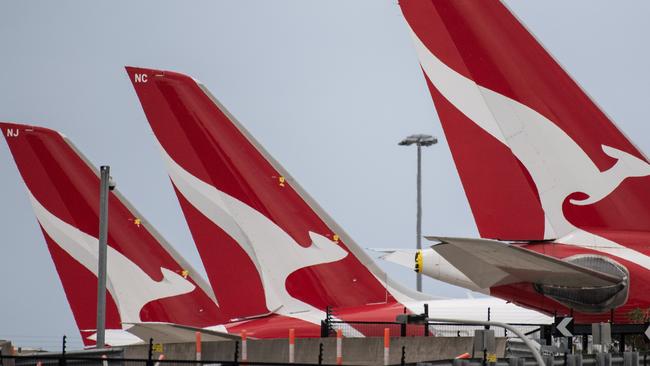
As borders across Australia reopen, Qantas expects to increase its share of the domestic market to more than 70 per cent after luring dozens of corporate accounts to the airline.
Delivering a market update on Thursday, chief executive Alan Joyce said 25 corporate customers had moved their accounts to Qantas this year, which was unprecedented.
He said it showed the corporate market was moving towards Qantas, at the same time as the low-cost market was moving to Jetstar following the demise of Tigerair.
“We believe there’s a big strategic advantage for Qantas … and it’s our intention to maintain those advantages (by having a bigger network and more frequencies),” Mr Joyce said.
“The result of all that is we think our market share will be above 70 per cent and that will be sustainable going forwards.”
Before the COVID pandemic, Qantas had between 60 and 65 per cent of the domestic market, with Virgin Australia holding about 30 per cent.
Mr Joyce said Virgin Australia had handed back “a lot of aircraft” so they would be significantly smaller than what they were pre-COVID.
He also dismissed the threat posed by Regional Express (Rex) Airlines’ move to take on Qantas and Virgin on the Golden Triangle routes of Sydney-Melbourne-Brisbane.
Rex deputy chairman John Sharp has claimed the carrier’s low cost base would enable them to deliver a “Qantas offering at Jetstar prices” that would appeal to business and leisure travellers alike.
But Mr Joyce said Jetstar would still have a significantly lower cost base because of their “scale advantage” over Rex, and lower fares.
“We do believe that for the business market, Rex’s network is extremely limited and the business corporate market is still going to be very attracted to the proposition Qantas has,” he said.
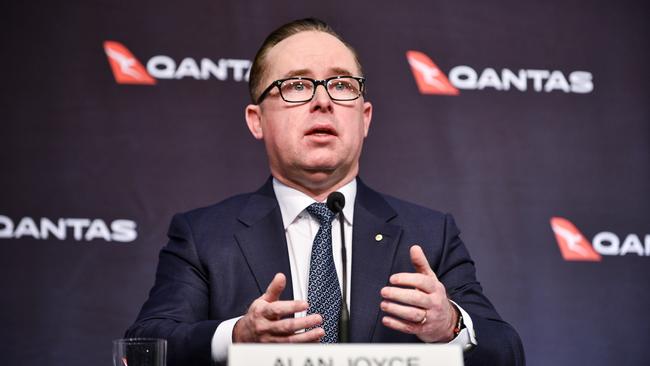
The fiercely competitive CEO also drew attention to Qantas’s offer to reward top tier customers of other airlines with gold tier status if they could amass 100 status credits in three months.
He said “thousands of customers” had responded to the announcement across all 16 rival loyalty programs that were eligible.
“So we’re very confident in our relative position and what that means for our relative market share which should be above 70 per cent going forward,” Mr Joyce said.
The Australian Competition & Consumer Commission was currently monitoring the airline industry at the federal government’s request, and a spokesman said they had observed market share volatility.
“We expect it to remain this way as the industry operates at reduced capacity,” he said.
“Market shares will change again as airlines add additional services to meet consumer demand and expand into new routes.”
A greater impediment to Qantas’s recovery from the devastating impact of COVID-19 and border closures was the debt accumulated by the airline in the space of five months.
The market update revealed net debt climbed by $1.2bn in the period from June to November, from $4.7bn to $5.9bn.
Mr Joyce acknowledged it would take some time to repair the Qantas Group’s balance sheet but he was satisfied that with domestic travel rebuilding, the company would be cashflow-positive in the second half of the 2021 financial year.
“To be clear on what this means, we’re not back in the black — far from it. We’ll post a significant loss this year,” he said, noting that Qantas had recorded a $2.7bn loss in 2020.
“Broadly speaking it means the strong performance of Qantas Loyalty and Qantas Freight and now the improving performance of Qantas Domestic will cover the overheads from our stranded costs in Qantas International.
“We’re faced with carrying these assets until at least July next year before they start generating cash again.” By the end of 2020, 5000 workers were expected to have left Qantas, which was in the process of axing 6000 positions and outsourcing another 2500.
The 20,000 or so who remained were likely to face the prospect of a pay freeze or other cost-saving measures, if Virgin Australia employees voted in favour of new work agreements.
Unions reached in-principle agreements with Virgin management on Thursday and Mr Joyce said he would be looking intently at the details.
Qantas shares closed down 6c to $5.49 in the wake of the market update.


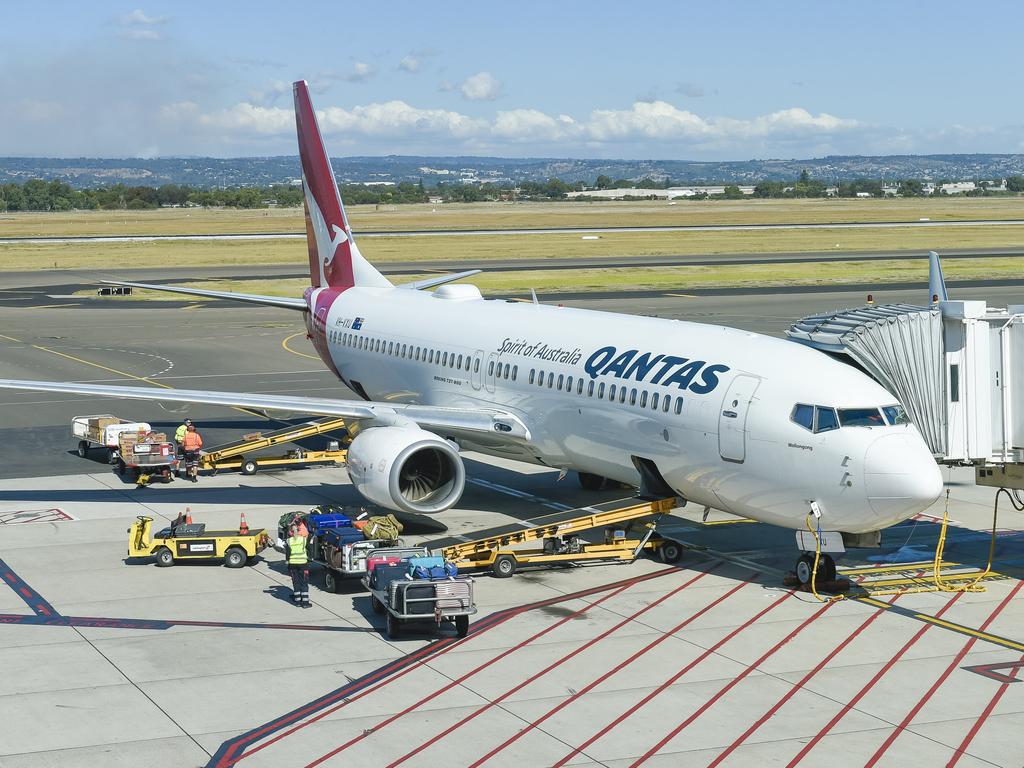
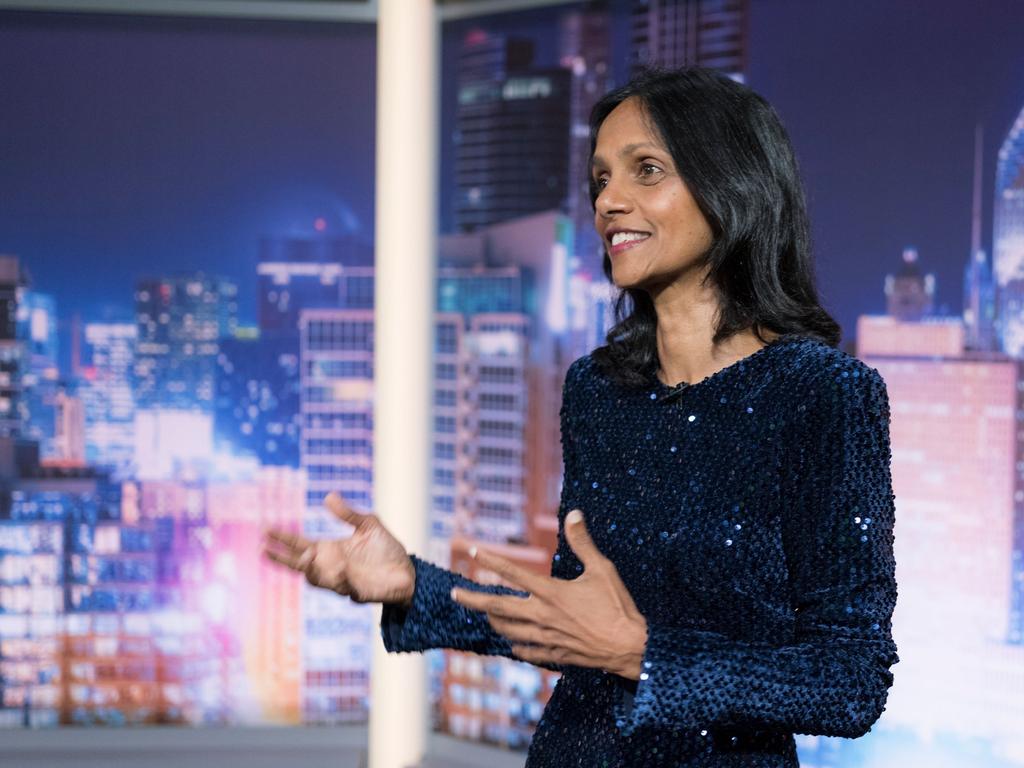
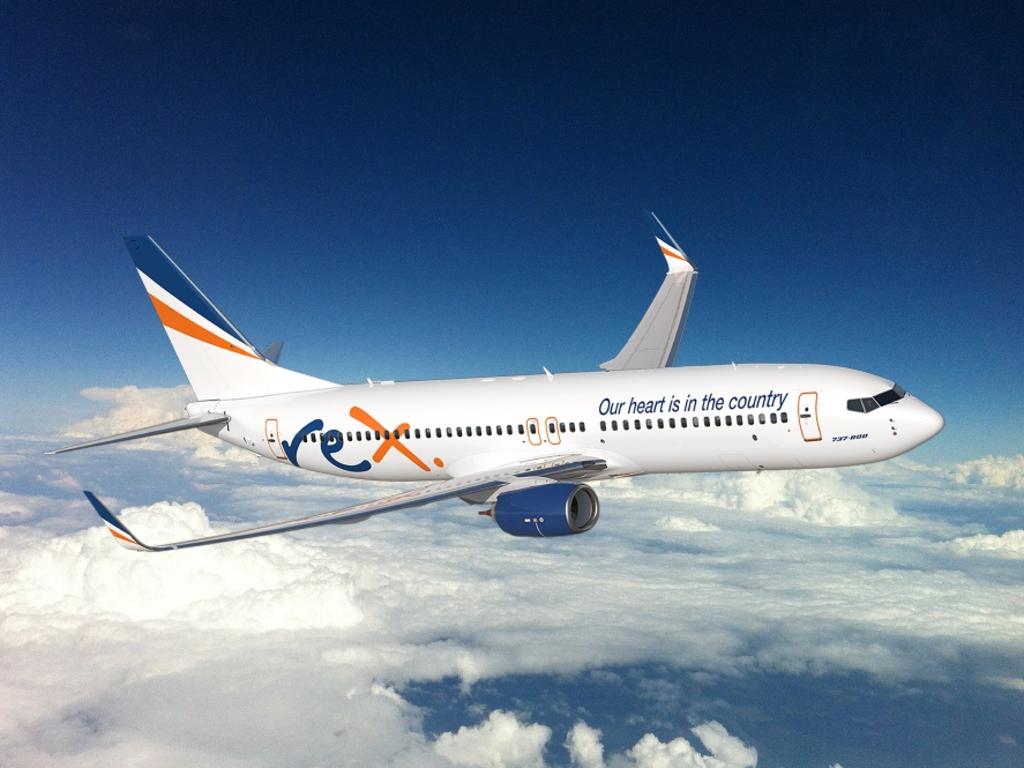


To join the conversation, please log in. Don't have an account? Register
Join the conversation, you are commenting as Logout